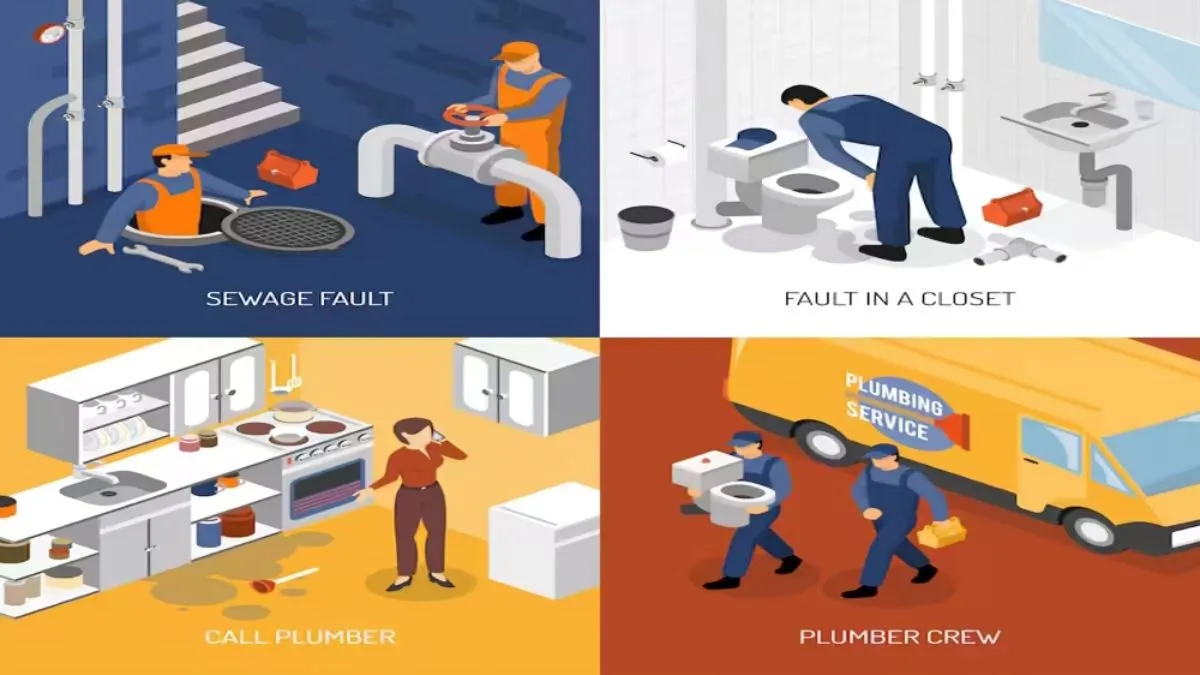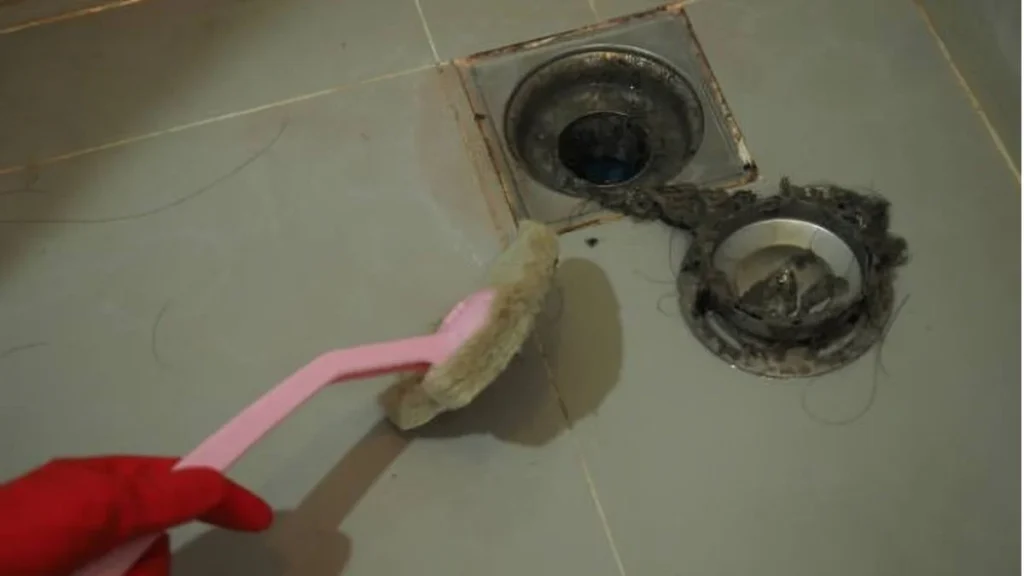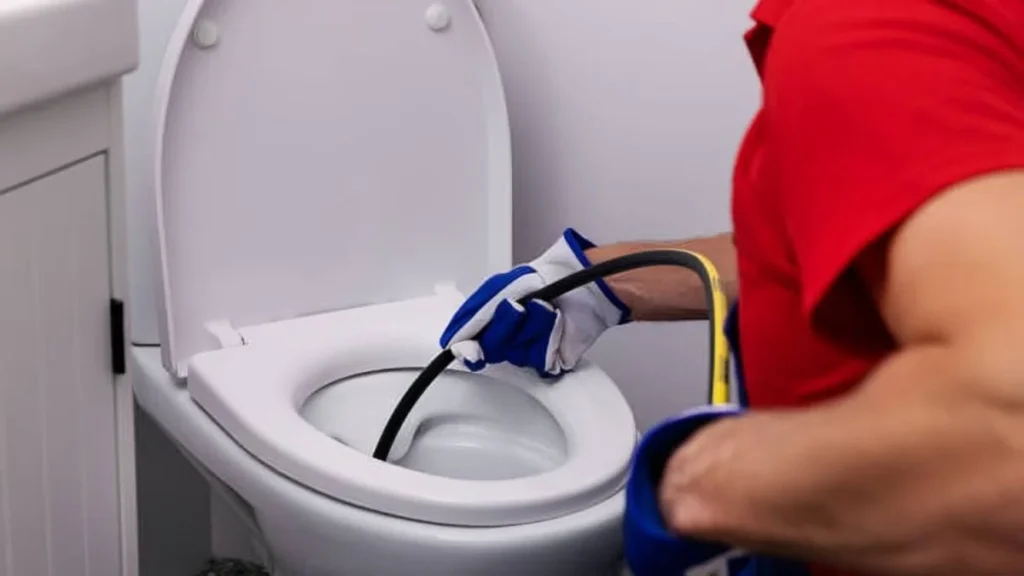HOME IMPROVEMENT
Preventing Plumbing Disasters: How Routine Drain Cleaning Keeps Your Pipes in Top Shape

Plumbing disasters can strike when you least expect them, often leading to significant damage and costly repairs. From clogged drains to burst pipes, these problems disrupt your daily life and can quickly escalate into major headaches if left unattended. Fortunately, many of these issues can be prevented with proper maintenance. One of the most effective ways to keep your plumbing system in good health is through routine drain cleaning. Regularly cleaning your drains not only helps prevent blockages but also ensures that your pipes remain in optimal condition.
In this article, we’ll explore the common causes of plumbing disasters, the benefits of routine drain cleaning, the techniques used to maintain pipe health, and how you can save time and money by investing in preventative care.
The Common Causes of Plumbing Disasters
Plumbing disasters typically start with small issues that gradually worsen over time. In most cases, these problems can be traced back to common causes, such as:
Build-up of Debris and Grease
One of the most frequent causes of plumbing blockages is the gradual build-up of debris and grease in your drains. Over time, cooking oils, food particles, and other substances stick to the walls of your pipes, restricting the flow of water. If this build-up is not addressed, it can result in a complete blockage, causing backups and overflowing water.
Tree Roots Intruding into Pipes
Tree roots are another common culprit of plumbing disasters, especially in older homes with aging pipes. Roots naturally seek out water sources, and your plumbing system can be an attractive target. If tree roots infiltrate your pipes, they can cause significant blockages, cracks, or even bursts, leading to costly repairs.
Accumulation of Hair, Soap Scum, and Foreign Objects
Bathroom drains, particularly in showers and sinks, are prone to clogs caused by hair and soap scum. Additionally, flushing foreign objects such as wipes, feminine hygiene products, or excess toilet paper can contribute to blockages. These materials do not break down easily and can obstruct water flow, resulting in plumbing emergencies.
Ignoring these issues can lead to slow drainage, unpleasant odors, and eventually major plumbing failures. However, with routine drain cleaning, you can prevent these problems before they escalate.

How Routine Drain Cleaning Prevents Blockages
Routine drain cleaning is an essential part of plumbing maintenance that helps prevent clogs from forming and keeps your pipes running smoothly. Here’s how it works:
Removal of Debris Before it Becomes a Problem
Clogs form gradually as materials accumulate in your drains. Without regular cleaning, these substances can solidify, making it difficult for water to pass through. Routine drain cleaning removes debris before it has a chance to build up, allowing water to flow freely through your pipes. This not only prevents blockages but also improves the efficiency of your plumbing system.
Eliminating Foul Odors
One often overlooked benefit of drain cleaning is the removal of substances that cause unpleasant odors. Food particles, grease, and other debris can create a breeding ground for bacteria, leading to foul smells emanating from your drains. Routine cleaning eliminates these contaminants, leaving your home smelling fresh.
Preventing Future Plumbing Disasters
By investing in routine drain cleaning, you can proactively address potential issues before they turn into major disasters. Clogs that are caught early are easier (and cheaper) to fix, and regular maintenance helps extend the lifespan of your plumbing system.
For homeowners who want to ensure their plumbing remains in top shape, VisitSOS Drain Cleaning for more info on how professional drain cleaning services can keep your pipes clear and functioning properly.
Drain Cleaning Techniques for Optimal Pipe Health
There are several methods used by professional plumbers to clean drains and keep your pipes in top condition. Each technique is designed to effectively clear blockages and prevent future issues, depending on the severity of the problem.
Hydro Jetting
Hydrojetting is a highly effective drain-cleaning technique that uses a high-pressure stream of water to remove debris and buildup from the inside of your pipes. The powerful water jet can clear out even the toughest clogs, including tree roots, grease, and mineral deposits. Hydro jetting is ideal for preventing future clogs and keeping your pipes clean for the long term.

Snaking
Drain snaking is another common method used to clear blockages in pipes. This technique involves using a flexible metal cable with a specialized attachment to break up and remove clogs. Snaking is particularly effective for removing smaller blockages, such as hair and soap scum, in bathroom drains.
Video Inspection
Before cleaning your drains, many plumbers will use a video camera inspection to locate the source of the clog and assess the overall condition of your pipes. This allows them to identify potential issues, such as cracks or tree root intrusions, and determine the best course of action for cleaning and repairs.
Professional drain cleaning not only eliminates clogs but also helps detect underlying problems before they cause major damage. If you have specific plumbing questions like can plumbing vents run horizontally, you can contact Clean Line for expert advice and guidance.
Financial and Long-Term Benefits of Regular Drain Cleaning
Routine drain cleaning offers significant financial and long-term benefits for homeowners, making it a smart investment for maintaining your plumbing system. Here’s how:
Reduces the Risk of Costly Repairs
By regularly cleaning your drains, you reduce the likelihood of severe blockages that could lead to major plumbing disasters. Avoiding emergency repairs saves you money in the long run, as addressing minor issues early on is much more cost-effective than dealing with a full-blown plumbing emergency.
Extends the Lifespan of Your Plumbing System
Regular maintenance, including drain cleaning, helps extend the life of your plumbing system. Clogged or damaged pipes can lead to premature wear and tear, but by keeping them clean and clear, you can prolong the need for costly replacements.
Prevents Water Damage and Mold Growth
Plumbing disasters such as overflows and burst pipes can cause extensive water damage to your home. This not only requires expensive repairs but can also lead to mold growth, which poses serious health risks. Routine drain cleaning helps prevent these issues by keeping your plumbing system in good working order.
How Often Should You Schedule Drain Cleaning?
How often you should schedule drain cleaning depends on several factors, including the age of your plumbing system, the size of your household, and how frequently you experience plumbing issues. As a general rule, most homeowners should schedule professional drain cleaning at least once a year. However, homes with older plumbing or frequent clogs may benefit from more frequent cleanings.
Consult with a professional plumber to determine the best cleaning schedule for your home. Regular maintenance is key to keeping your pipes in top shape and avoiding plumbing disasters.
a
Plumbing disasters can be costly and inconvenient, but many of them are preventable with routine drain cleaning. By removing debris, eliminating odors, and addressing potential issues before they escalate, you can keep your plumbing system running smoothly and extend the life of your pipes. Don’t wait for a disaster to strike, invest in regular maintenance and enjoy the peace of mind that comes with a healthy plumbing system.
For professional help with keeping your drains clean, reach out to your local plumbing expert today.
-

 GENERAL6 months ago
GENERAL6 months agoChristofle – For Those Who Dream of Family Heirloom Silver
-

 SPORTS8 months ago
SPORTS8 months agoDiscover the World of Football with Streameast: Watch Your Favorite Leagues and Tournaments
-

 GENERAL5 months ago
GENERAL5 months agoUncovering the World of кинокрадко: The Dark Side of Film Piracy
-

 GENERAL2 months ago
GENERAL2 months agoATFBooru: Anime, Gaming, and Subculture Imageboard























